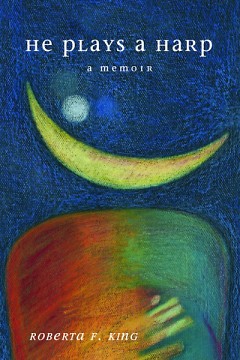Roberta F. King’s memoir, “He Play’s a Harp,” will be officially released May 11. The memoir is a collection of essays about the life and death of her son Noah, who was born prematurely with cerebral palsy and lived for 17 years until a lung infection ended his life eight years ago. The idea for the book first began as a Voices article on The Rapidian.
“I didn’t start out to write a book. I just started writing some essays about the life and death of my son and the first one appeared in The Rapidian. The reactions I got from people who read that one and others that followed it was my motivation. That’s how it got started. There wasn’t a plan from the outset when I wrote the first essay. I didn’t say, ’I’m going to write a book.’ I just thought I would write an essay and maybe another one. Several of them got published in literary journals and that made me realize I had something that people really liked,” says King.
After attending a writing workshop at University of Iowa’s summer writing festival, King began writing the book.
The memoir explores themes of life, death, grief, disability and moving on. The title of the memoir comes from an earlier essay of King’s.
“It was about meeting somebody for the first time and not being able to tell them that my son had died. When they started asking questions about him, this sort of story I had to make up kept compounding because I hadn’t told them the truth. At one point they asked, ‘Well, what does he like to do with his time?’ and I said, ‘Well, he plays a harp.’ It was just this crazy thing that came out of nowhere and kind of like the book, it just happened. So I decided to use that for the title. It’s kind of an analogy about storytelling itself,” says King.
When arranging the essays for the book, King decided against a chronological approach and organized the essays with the help of a friend.
“I didn’t want it to be he was born, he got sick, he died and I grieved. That just seemed too simple. So, I started out with the most powerful thing to the reader, which is the story of his illness and death. Then, we went to stories from his life and his disability, and then we went back to the time of his death and just after the time of his death and went through a couple of stories there. Then we went to stories about grief and moving forward. It wasn’t written in an organized fashion, and I had a very good editor at my publishing company to help me clean it up and look for inconsistencies and incomplete areas. She was very helpful,” says King.
King hopes that her memoir will help readers develop of better understanding of children with a disability and parents who have lost a child.
“I want people to know that kids with a disability, and people whose children have died, are people not to be afraid of. It’s an awkward thing. People don’t understand disability necessarily and they’re also kind of frightened. [They're worried] about if they’re going to say the right thing or do the right thing with parents who’ve had a child die. I think this book takes some of the fear away from both of those subjects and makes it a little more accessible,” says King.
Now that the book is finished, King is excited for its release.
"It’s been a long experience. I started it four years ago. Other authors will tell you it takes them 10 years, but for me four years seemed like a very long time to start working on something and to continue working on it and to see it through,” says King. "After four years of work, it feels very good to be at this point and to hold the book in my hands."
The Rapidian, a program of the 501(c)3 nonprofit Community Media Center, relies on the community’s support to help cover the cost of training reporters and publishing content.
We need your help.
If each of our readers and content creators who values this community platform help support its creation and maintenance, The Rapidian can continue to educate and facilitate a conversation around issues for years to come.
Please support The Rapidian and make a contribution today.

